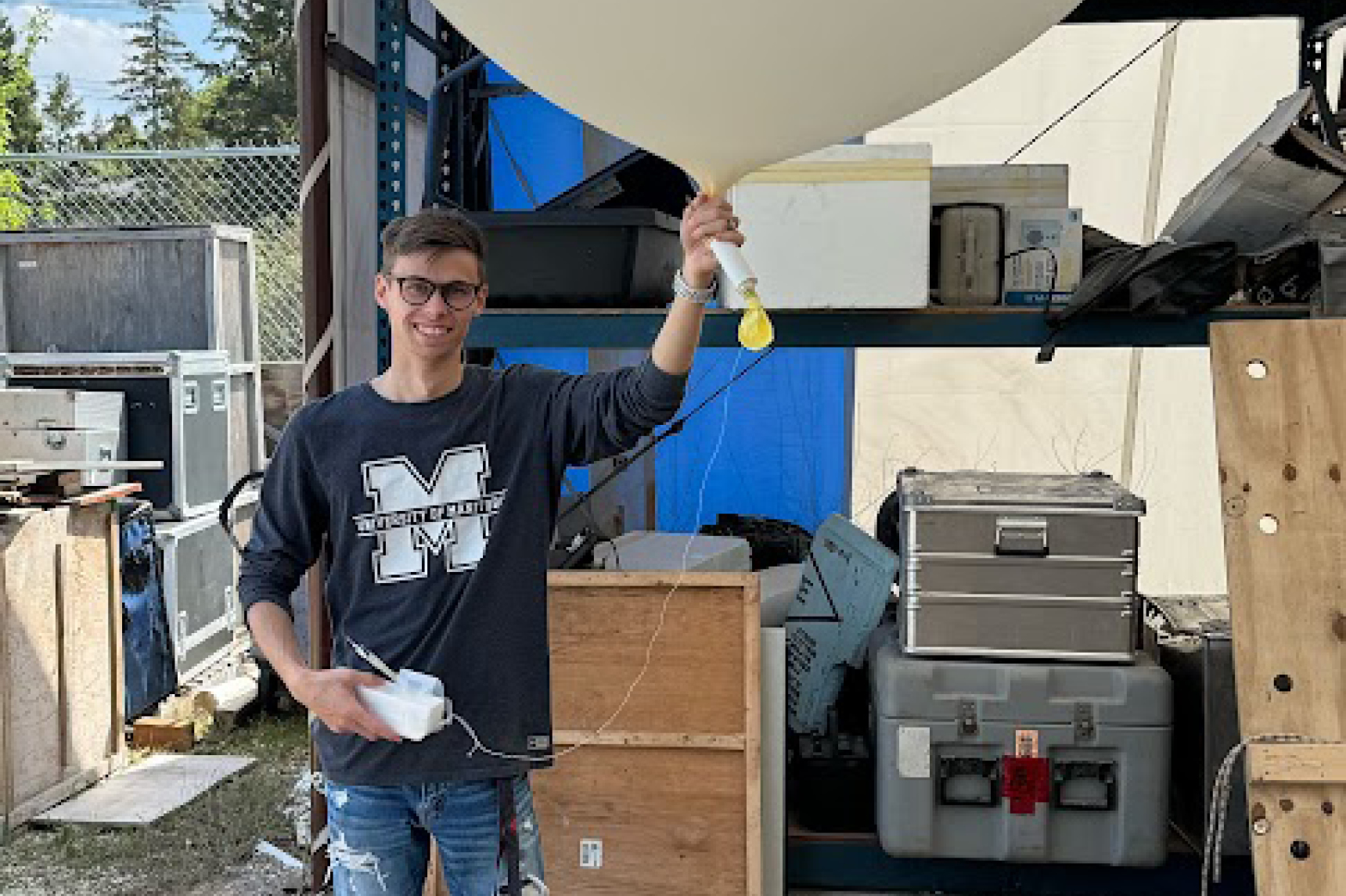
Adapt to achieve: advice from one student’s success journey
When it comes to student success, everyone’s journey is going to be different. However, the best way to find your way is still to learn from others’ experiences. Jaydon Svensson, an undergraduate physical geography student in the atmospheric and hydrological sciences stream, has offered insights from his own educational path over the last few years at UM.
Be honest with yourself, and don’t be afraid of change. Svensson started by following his interests with “a strong passion for physics and astronomy,” but like many students, lost confidence in his original path. As Svensson recounts:
“After two years of studying from home due to COVID-19 protocols, I started to struggle academically and felt that earning a university degree was becoming an unattainable goal. This was a challenging time for me, as I realized I was losing interest in the material required for my degree. At this point, I understood that I needed to make a change because I no longer felt the enthusiasm I once had for the physics program. I decided it was time to create a career plan that would give me a goal beyond just obtaining a degree.”
Svensson switched from the Faculty of Science to the Riddell Faculty of Environment, Earth, and Resources, and his openness to change paid off. He explains, “This change allowed me to apply my physics knowledge and skills while rekindling my passion for learning. Since switching programs, I have experienced significant academic success in my coursework and found it easy to push myself to become involved in the atmospheric science community on campus.” But how did he choose a new program?
Take advantage of on-campus resources. UM is full of services and staff who are invested in your success. Svensson says,
“I reached out to Career Services on campus, hoping to explore my options in my current path. After just one meeting with Career Services, I discovered a career path that excited me, along with another program at the university that could help me pursue it: a degree in atmospheric science through the Physical Geography program to become a meteorologist.”
Career Services helped Svensson find a new path that utilized his previous skillset but with a new, exciting goal. Furthermore, they connected him with people at his new faculty who could provide more information and ease the transition.
Balance is key, but it takes time to build a structure that works for you. Even though Svensson enjoys his program, he struggles with anxiety and keeping on top of his studies, work, and personal life. To help, he says, “I developed a healthy study plan that included scheduled times not only for completing coursework but also for prioritizing my mental health and well-being each day.” Other strategies Svensson uses include planning out goals and tasks at the beginning of each week and breaking those down into manageable tasks. He describes,
“Through this scheduling, I become motivated to tackle each task one at a time, day by day. Over time, this approach became a habit, and I now find myself approaching life’s uncertainties with excitement instead of fear. We may never be able to control or predict the future, but we can face every situation with curiosity and enthusiasm, viewing each as an opportunity to grow and become stronger.”
Gaining a sense of direction is an important component to student success. Finding that direction is the challenge, but once you have it, it will propel you forward. Svensson explains, “I am looking forward to starting a career where I can make a positive impact and contribute fresh ideas to the atmospheric science community. Upon graduation, I will passionately follow my path in atmosphere science, embracing whatever opportunities come my way.” Remember, he didn’t always have this feeling of enthusiasm about his studies: “I never would have predicted that I would be on the career path I am now, but I couldn’t be happier or more excited about it.”
A positive mindset is an invaluable tool. If there’s one thread that runs through Svensson’s experience, it’s his enthusiasm and optimism. He says that his optimism is part of what helps him “stay open to new ideas,” like changing his degree program. “A positive mindset can help you shift your focus away from uncertainties,” he explains, “and give you the energy to tackle the tasks at hand.” Svensson attributes his current fulfilment in his studies and excitement for the future ahead to these habits, reflecting:
“You may be surprised at how many new opportunities and doors will open for you as you navigate the unknown with confidence. Believe in yourself, and make sure to reflect on your feelings in every situation.”
A positive mindset like Svensson’s redefines the way we understand student success. A successful student is not one who has followed a perfect, predetermined path and achieved a particular career goal. A successful student is one who faces challenges head-on, embraces change, reaches out to their community for guidance, and, most importantly, finds joy in their academic journey. Any student would do well to take a moment to reflect on their own academic journey, as Svensson has, and appreciate how far they’ve come.






